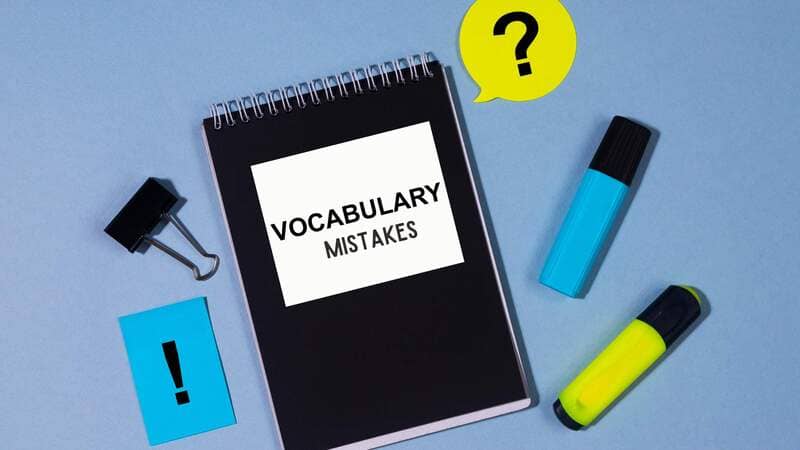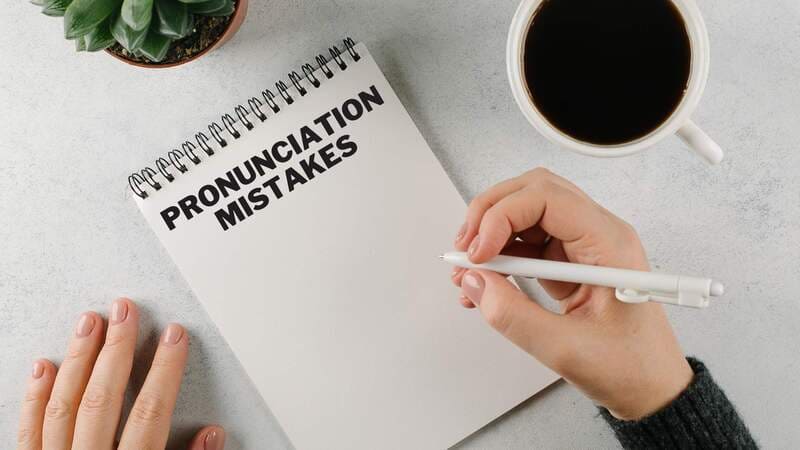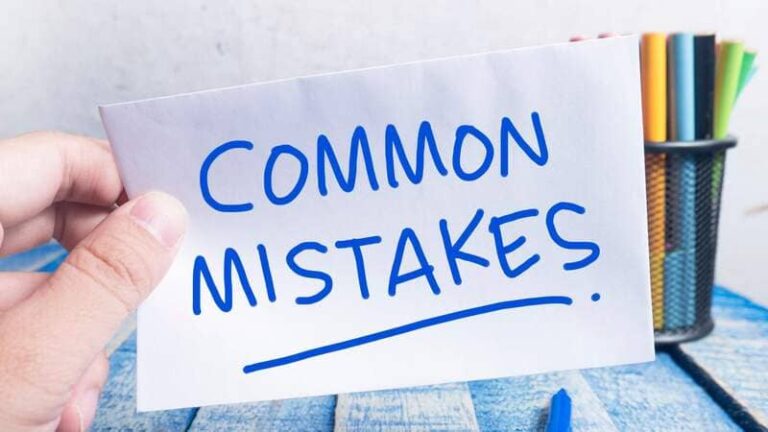Common mistakes in English
Table of Contents
ToggleGenerally, we commit vocabulary, pronunciation and grammatical mistakes in English conversation. Most of the time, we don’t realize our mistakes, and they become a permanent part of our daily conversation.
When speaking English, it’s common to make mistakes, especially if English is not your native language.
If a Mistake is committed during a conversation for a single time, it can go unnoticed. But if we keep repeating the same mistakes, it can have a wrong impression on our listeners.
Therefore, they can be corrected if you frequently encounter any problems in your speaking, like grammatical, vocabulary, pronunciation errors, etc. All you need to do is thoroughly learn(I am not using the word read) the below suggestions and practice them for at least a week.
Here are some common mistakes in English that need to be avoided and also tips for correcting grammar, vocabulary, and pronunciation errors:
Common Grammatical Mistakes in English:

Subject-verb agreement:
Make sure that Subject and verb in a sentence agrees in number (singular or plural) to avoid mistakes in English grammar.
Example: We are going to the UK. (Incorrect sentence).
Notice that in the above sentence, the word “We” is a Plural word while the word “is” is a singular verb. It means the Subject disagrees with the sentence. Therefore, it is an incorrect sentence.
Example 2: We are going to the UK. (Correct sentence).
In this sentence, both the Subject (We) and verb) are agreeing with each other. Therefore, it is a correct sentence.
So, always be mindful of using correct subject-verb agreement during a conversation.
With, He/She/It use “is.”
With, We/They/Them use “are.”
Verb tense:
Use the appropriate verb tense to express past, present, or future actions.
For events or actions that occurred in the past, use “was or were.”
- Example: Harry was going to market.
Harry and George were going to market.
For events or actions that occurred in the present, use “is, am, are.”
2. Example: Harry is going to market.
I am going to Florida.
Harry and George are going to market.
For events or actions that will be occurring in the future, use “will, shall, will be or shall be.”
3. Example: Harry will go to market.
Harry will be going to market.
Harry and George shall go back to his hometown.
Harry and George shall be going back to their hometown.
Word order:
Pay attention to the correct word order in a sentence, especially when using adjectives, adverbs, and prepositions.
It means the object shall fall after the verb, and the verb shall fall after the Subject. Subject +Verb +Object.
Example: Jack (Subject) picked (verb) the ball (object).
Articles (a/an, the):
Use articles correctly based on whether you are referring to a specific or non-specific noun.
Example: Jerry is an artist.
John is a good kid.
Alice is the owner of this house.
Pronoun usage:
Make sure pronouns (he, she, it, they, etc.) match the noun they refer to in terms of gender and number.
Example: John is a good kid. He (pronoun) obeys his parents.
Note: Want to know “How to pronounce words correctly?” Read Introduction to English Pronunciation.
Vocabulary Mistakes:

Word choice:
Use words that accurately convey your intended meaning. Be cautious with synonyms, as words may have subtle differences in meaning and usage.
Idiomatic expressions:
Learn common idioms and expressions, as direct translations may need to be clarified in English.
Collocations:
Pay attention to the words that typically go together (e.g., “make a decision,” not “do a decision”).
Pronunciation common Mistakes in English:

Vowel sounds:
Practice the correct pronunciation of English vowels, as they can vary significantly from those in other languages.
Consonant sounds:
Pay attention to consonant sounds that may not exist in your native language, such as “th” (as in “thin” and “this”) or “r.”
Stress and intonation:
Emphasize the correct syllables, use appropriate intonation patterns to convey meaning, and avoid sounding robotic.
Tips for Correcting Mistakes:
Practice regularly:
Regular practice is critical to improving your English skills. Dedicate time to reading, listening, speaking, and writing in English.

Seek feedback:
Ask native speakers or qualified English teachers for feedback on your speaking skills. They can point out specific mistakes and help you correct them.
Use language-learning resources:
Utilize textbooks, online courses, language exchange programs, and language learning apps to enhance your knowledge of English grammar, vocabulary, and pronunciation.
Watch and listen to native English speakers:
Immerse yourself in English-language media, such as movies, TV shows, podcasts, and songs. Pay attention to the way native speakers pronounce words and construct sentences.
Record yourself:
Record your voice while speaking in English and listen to it closely. This will help you identify mistakes and areas for improvement.
Conclusion:
Above are some common mistakes in English conversation, along with their correction methods.
Remember, making mistakes is a part of the language-learning process. Don’t be discouraged by errors; instead, view them as opportunities to learn and grow. With time and practice, you’ll improve your English-speaking skills.
















